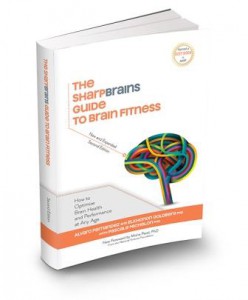Cognitive Training or Gingko Biloba to prevent cognitive decline and dementia? New comprehensive report by the National Academies of Sciences, Engineering, and Medicine clarifies priorities for public health and for future research
 Evidence Supporting Three Interventions That Might Slow Cognitive Decline and the Onset of Dementia Is Encouraging but Insufficient to Justify a Public Health Campaign Focused on Their Adoption (National Academies of Sciences, Engineering, and Medicine):
Evidence Supporting Three Interventions That Might Slow Cognitive Decline and the Onset of Dementia Is Encouraging but Insufficient to Justify a Public Health Campaign Focused on Their Adoption (National Academies of Sciences, Engineering, and Medicine):
“Cognitive training, blood pressure management for people with hypertension, and increased physical activity all show modest but inconclusive evidence that they can help prevent cognitive decline and dementia, but there is insufficient evidence to support a public health campaign encouraging their adoption, says a new report from the National Academies of Sciences, Engineering, and Medicine. Additional research is needed to further understand and gain confidence in their effectiveness, said the committee that conducted the study and wrote the report…
Overall, the committee determined that despite an array of advances in understanding cognitive decline and dementia, the available evidence on interventions derived from randomized controlled trials – considered the gold standard of evidence – remains relatively limited and has significant shortcomings. Based on the totality of available evidence, however, the committee concluded that three classes of interventions can be described as supported by encouraging but inconclusive evidence. These interventions are:
- cognitive training – which includes programs aimed at enhancing reasoning and problem solving, memory, and speed of processing – to delay or slow age-related cognitive decline. Such structured training exercises may or may not be computer-based.
- blood pressure management for people with hypertension – to prevent, delay, or slow clinical Alzheimer’s‑type dementia.
- increased physical activity – to delay or slow age-related cognitive decline.
When funding research on preventing cognitive decline and dementia, the National Institutes of Health and other interested organizations should identify individuals who are at higher risk of cognitive decline and dementia; increase participation of underrepresented populations; begin more interventions at younger ages and have longer follow-up periods; use consistent cognitive outcome measures across trials to enable pooling; integrate robust cognitive outcome measures into trials with other primary purposes; include biomarkers as intermediate outcomes; and conduct  large trials designed to test the effectiveness of an intervention in broad, routine clinical practices or community settings.”
large trials designed to test the effectiveness of an intervention in broad, routine clinical practices or community settings.”
The Report
Preventing Cognitive Decline and Dementia: A Way Forward (National Academies of Sciences, Engineering, and Medicine)
- Summary: Individuals, families, and societies around the world are concerned about dementia and the other forms of cognitive impairment that affect many older adults. It is now known that brain changes typically begin years—if not decades—before people show symptoms, which suggests that a window of opportunity exists to prevent or delay the onset of these conditions. Further, emerging evidence that the incidence and prevalence of dementia are declining in high-income countries offers hope that public health interventions can be effective in preventing cognitive decline and dementia. Although the evidence base on how to prevent or delay these conditions has been limited at best—despite the many claims of success made in popular media and advertising—a growing body of prevention research is emerging. The National Institute on Aging (NIA) initiated this study with the National Academies of Sciences, Engineering, and Medicine to take stock of the current state of knowledge on interventions for preventing cognitive decline and dementia, to help shape the messages NIA conveys to the broader public about these conditions, and to inform future actions and research in this area.
- To access the report: click Here
Key Take-Aways
The report classified all the following interventions into four categories, according to the same precise criteria based on all available scientific evidence. From higher levels of evidence to lower ones:
A. Highest Priority for Future Research — Interventions with encouraging but inconclusive evidence
- cognitive training
- blood pressure management for people with hypertension
- increased physical activity
B. Additional Priorities for Future Research — Interventions with insufficient evidence but deserving future research
- new antidementia pharmacological treatments that can delay onset or slow disease progression
- diabetes treatment
- depression treatment
- dietary interventions
- lipid-lowering treatment/statins
- sleep quality interventions
- social engagement interventions
- vitamin B12 plus folic acid supplementation.
C. Lowest Priority for Future Research — No evidence of any benefit, and some evidence of lack of benefits
- Acetylcholinesterase Inhibitor (AChEI) Antidementia Drugs
- Nonsteroidal Anti-Inflammatory Drugs (NSAIDs)
- Gingko Biloba
- Vitamin E
- Hormone therapy interventions
D. Intervention with evidence suggesting detrimental effects on cognition
- Estrogen-containing Hormone therapy interventions



